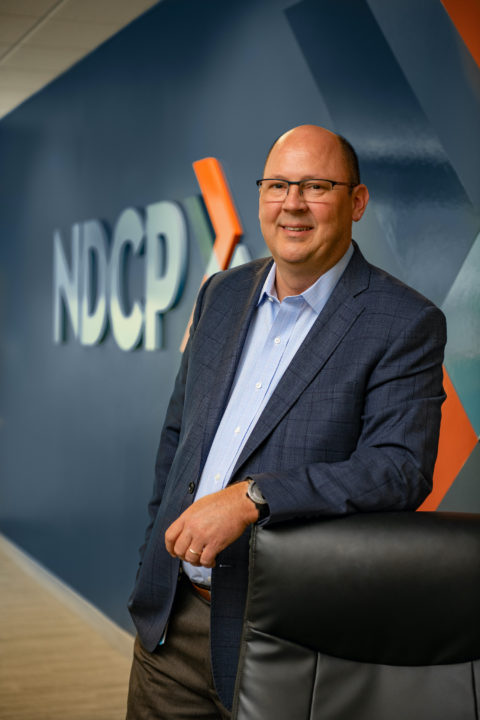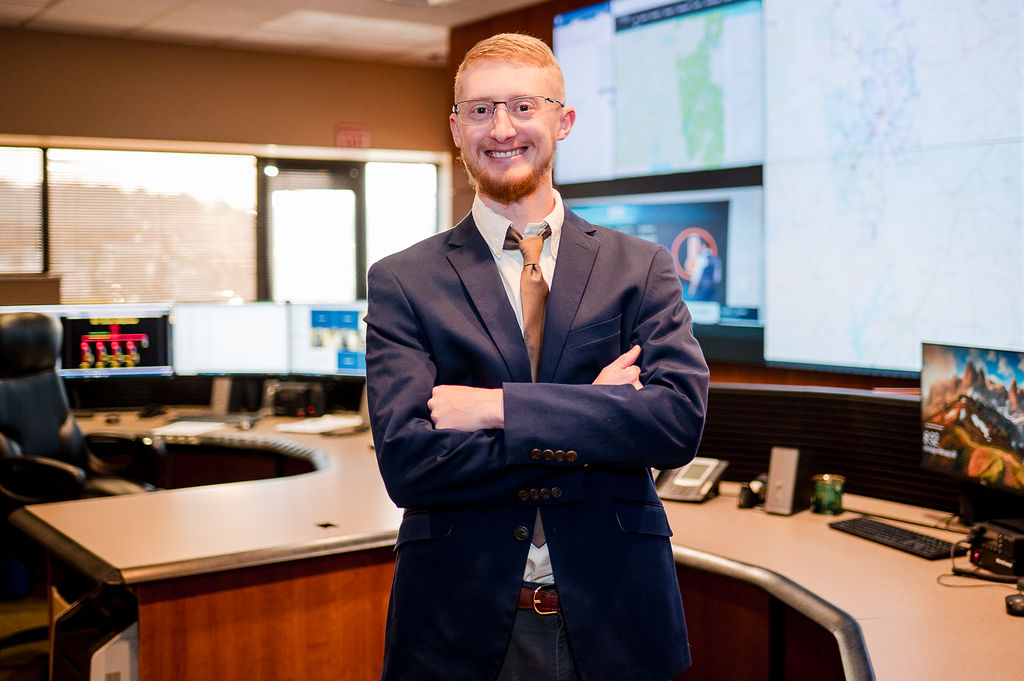
The COVID-19 pandemic sent many of the world’s businesses scrambling to find ways to stay afloat. Scott Carter, University of West Georgia alumnus and chief executive officer for National DCP LLC (NDCP), recently discussed how the company navigated the crisis during the Merryl and Hardy McCalman Executive Roundtable.
Carter, who has more than 25 years of experience in business strategy and supply chain innovation and management, said his time at UWG paved the way for his success.
“When I look back at many of the decisions that I made while at the University of West Georgia, I see they really brought me to where I am today – from family to work,” he said. “I met my wife there 29 years ago, and we’ve been married for 25 years. It was there that I also made the decision to enter the operations arena.”
Hosted by the Richards College of Business, the “roundtable” is a tradition at UWG. It was designed primarily to enhance the personal and professional growth of business students. Membership is chosen to provide a balance between outstanding students, interested faculty and dynamic representatives of industry.
Traditionally, a different keynote speaker is chosen each semester to speak and involve attendees in an open discussion on topics related to the speech. The event was held virtually this year for the first time in its history.
NDCP is a $2 billion supply chain management company serving the franchisees of Dunkin’. Carter spoke on the company’s structure and success.
“It’s really a unique operating model as far as a legal and ownership structure, and it provides and drives a solutions-focused approach to our customers and our members,” he said.
During the pandemic, most companies’ logistical frameworks were disrupted, leading to issues with supply chains. Carter said his team worked relentlessly to make the right calls in order to modify and adapt NDCP’s supply chain in order to keep it flowing as well as possible.
“We had been watching Europe as everything was closing down in February,” Carter said. “Soon, overnight, it happened to us and our business dropped by 50 percent. We had to think about what kind of decisions to make and when to make them. It was important that we kept going. Our immediate focus became cash preservation.”
Although the company had to initially furlough 11,000 employees, it was able to retain them and provide them with a full wage during the halt in production. Furthermore, NDCP made sure employees were able to keep their medical benefits, covering their share of the cost.
“It was the best decision we made,” he said. “We didn’t want to release them and were able to bring virtually every one of them back with full wages and benefits.”
Carter said due to the extraordinary efforts made by NDCP, the company survived, overcame and is thriving.
“We actually exceeded our 2020 budget targets,” he said. “We were able to stay financially healthy. There was a lot of cost cutting and we made many modifications to our operations, but we made it work.”
Following Carter’s presentation, members were broken into virtual private “roundtables” and were challenged with thought-provoking questions for discussion. After returning to the full assembly, a student from each group presented their conclusions.
Dr. Faye McIntyre, dean of the Richards College of Business and Sewell Chair of Private Enterprise, said Carter’s presentation was not only timely but offered an important, encouraging perspective of the current economic landscape in relation to supply and demand.
“We were honored to have Mr. Carter as our speaker for the McCalman Executive Roundtable,” said McIntyre. “His experience in business strategy and supply chain logistics is extensive, and his immense knowledge and insight provided great value to everyone in attendance.”
###
UWG serves more than 13,400 students from across Georgia, 35 other states and 68 countries. Perennially ranked by U.S. News and World Report as a top national university, West Georgia offers 92 fields of study, including business, nursing, education, STEM, social sciences and the arts. It generates a regional economic impact of more than $632 million and provides a safe, quality and affordable college experience that transforms lives.





